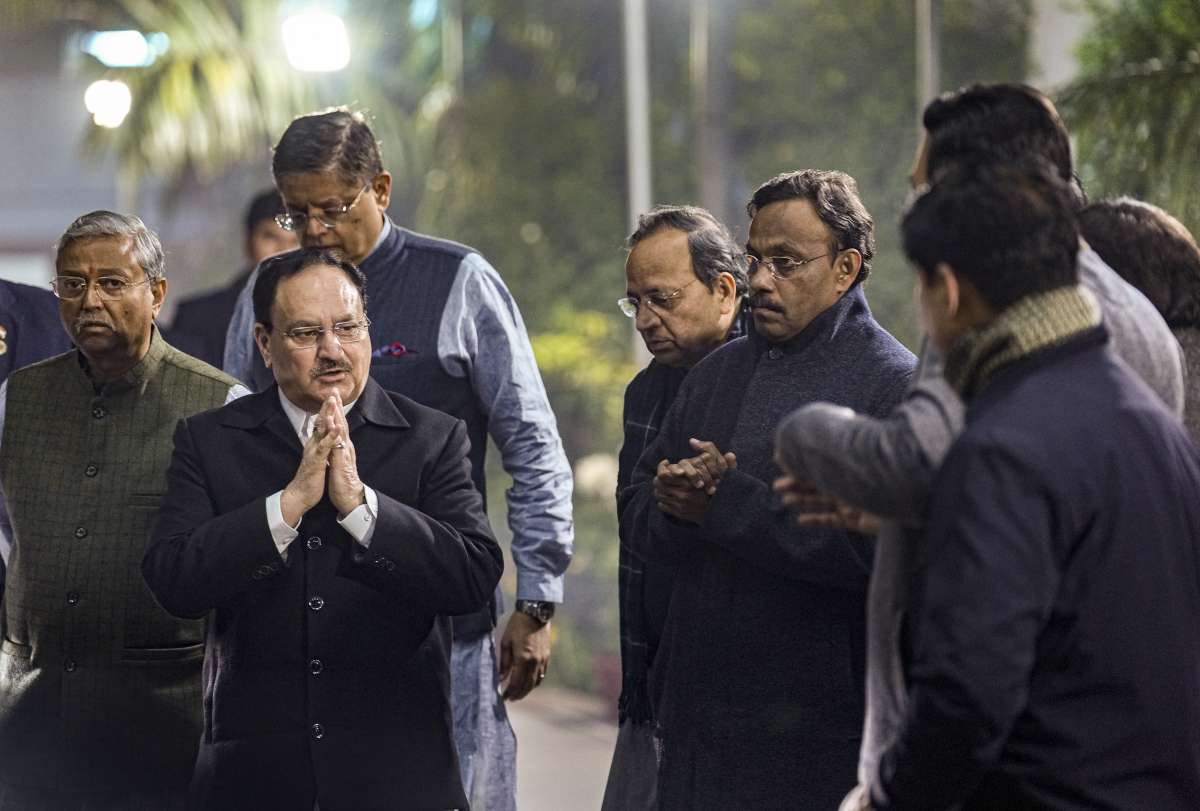 |
|
The upcoming Delhi Assembly elections are shaping up to be a crucial battleground for the Bharatiya Janata Party (BJP) and the Aam Aadmi Party (AAP). The BJP, despite winning all seven Lok Sabha seats in Delhi in the past three general elections, has been unable to translate this success into victory in the state assembly elections. The AAP, under the leadership of Arvind Kejriwal, has held power for the past decade, winning convincingly in both the 2015 and 2020 elections. This presents a significant challenge for the BJP, which is now mobilizing its resources to break the AAP's stronghold on the national capital. The recent meeting of the BJP's Central Election Committee (CEC), attended by Prime Minister Narendra Modi, Home Minister Amit Shah, and BJP president J P Nadda, underscores the party's determination to secure a win in the upcoming elections.
The CEC meeting focused on finalizing the second list of candidates for the Delhi Assembly polls. The first list, released earlier in January, included prominent figures such as former MP Parvesh Verma, who will contest against Arvind Kejriwal in the New Delhi constituency. Another former MP, Ramesh Bidhuri, has been nominated to challenge Atishi, the current Chief Minister and AAP candidate, in Kalkaji. The selection of candidates is a critical aspect of the BJP's election strategy. The party is likely carefully considering candidates' profiles, their local appeal, and their potential to garner votes against the established AAP candidates. This meticulous selection process reflects the BJP's awareness of the competitive landscape and the need to present a strong and compelling slate of candidates who can resonate with the electorate.
The BJP's strategy for the Delhi elections extends beyond just candidate selection. The party is likely employing a multifaceted approach that encompasses various campaign strategies. This could include extensive grassroots mobilization, targeted advertising campaigns, and highlighting development projects undertaken at the national level to contrast with the AAP’s governance record. The party may also focus on issues that resonate with Delhi's diverse population, ranging from concerns about law and order to economic development. The presence of key leaders like Modi, Shah, and Nadda at the CEC meeting signals the BJP's commitment to winning this important election. Their involvement underscores the significance of the Delhi elections within the larger political landscape and the party's determination to regain control of the national capital after a decade of AAP rule.
The upcoming elections will be a crucial test of the BJP’s electoral strength in Delhi. The party's ability to effectively counter the AAP's popularity and resonate with the electorate will be key to its success. The BJP's performance will not only affect Delhi’s political future but will also serve as an indicator for the party’s future electoral prospects in other urban centers across India. The contest will be a close one, with both parties pulling out all the stops in their efforts to secure victory. The coming weeks leading up to the elections will likely see an intensification of political activity and a vigorous exchange of accusations and promises from both sides. The outcome will shape the political trajectory of Delhi and have broader implications for the Indian political landscape.
